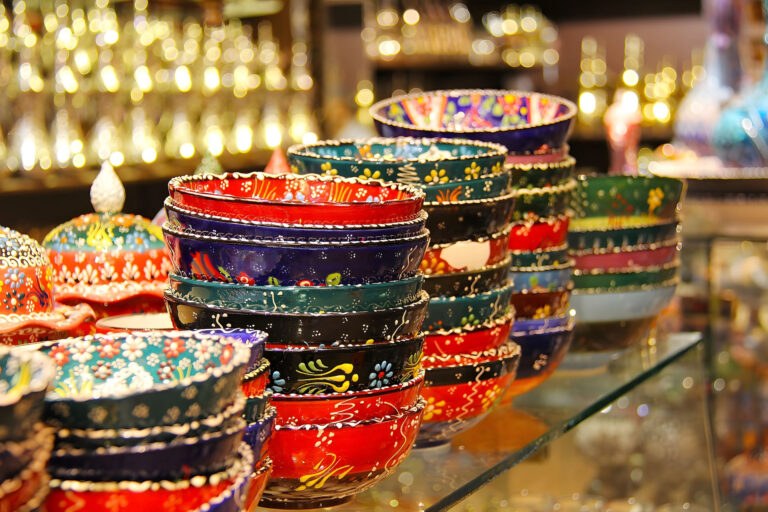Souvenir Shopping in Egypt: What Not to Miss

Souvenir Shopping in Egypt: What Not to Miss
Egypt is renowned for its rich array of souvenirs that reflect its cultural heritage and craftsmanship. Here are some recommendations for souvenirs to bring back from your Egyptian holiday.
1. Papyrus
Papyrus, one of the most iconic symbols of ancient Egypt, makes for a unique and traditional souvenir. Authentic papyrus scrolls featuring hand-painted motifs are widely available.
2. Cartouches
Cartouches—oval shapes encasing hieroglyphs—were traditionally used to display the names of pharaohs. Many artisans offer personalized cartouches with your name in hieroglyphs, providing a unique and personalized keepsake.
3. Galabeya (Jalabiya)
The Galabeya is a traditional Egyptian garment—loose-fitting, long robes or dresses available in various patterns. They are comfortable and can be a distinctive addition to your wardrobe.
4. Leather Goods
Egypt is known for high-quality leather products, including belts, wallets, bags, and shoes. Local markets offer a wide selection of handcrafted leather items.
5. Coffee
Egypt offers quality Arabic coffee, often flavored with cardamom. At local markets, you can purchase freshly roasted beans and traditional coffee pot (cezce) for preparation.
6. Incense and Oils
Incense sticks with oriental fragrances, such as musk or amber, are typical souvenirs. These products can evoke the ambiance of Egyptian bazaars in your home.
7. Statues and Artifact Replicas
Markets feature various statues of gods, sphinxes, and pyramids that serve as decorations or gifts for loved ones.
8. Quality Fabrics and Textiles
Egypt is renowned for producing high-quality fabrics, particularly cotton and silk. You can purchase fabric by the meter for your own creations or finished products like silk scarves or clothing made from Egyptian cotton.
9. Perfumes in Handcrafted Glass Bottles
Egyptian perfumes are often sold in beautiful, handcrafted glass bottles that are artworks in themselves. When purchasing, be cautious and choose reputable sellers to avoid counterfeit or low-quality fragrances.
10. Branded Clothing and Accessories
Many stalls offer clothing, sports jerseys, handbags, and accessories bearing logos of global brands. It’s important to note that these products are often counterfeit. Purchasing such items supports the illegal production and sale of counterfeit goods, which negatively impacts the economy and labor conditions.
11. Spices
Egyptian markets are filled with colorful and aromatic spices like cumin, coriander, turmeric, and saffron. High-quality spices make excellent souvenirs for cooking enthusiasts, adding authentic Oriental flavors to your dishes.
12. Sweets
Traditional Egyptian sweets include:
- Dates: fresh or dried dates are a popular and healthy treat.
- Baklava: a sweet pastry made of layers of thin filo dough, filled with chopped nuts, and sweetened with syrup or honey.
- Basbousa: a semolina-based cake sweetened with orange blossom water.
- Kanafeh: a dessert made from thin noodle-like pastry soaked in sweet syrup.
- Halva: a confection made from ground sesame seeds, often flavored with nuts or chocolate.
Tips for Purchasing Souvenirs:
Bargaining
Haggling is common and expected in Egyptian markets. Don’t hesitate to negotiate prices; it can be an enjoyable experience.
Quality
Pay attention to the quality of products and verify authenticity, especially when purchasing items like perfumes or branded goods.
Cultural Sensitivity
Be mindful of cultural and legal implications when buying certain items, such as antiques or products made from endangered species.
Bringing back authentic Egyptian souvenirs not only provides lasting memories but also supports local artisans and preserves traditional crafts.

